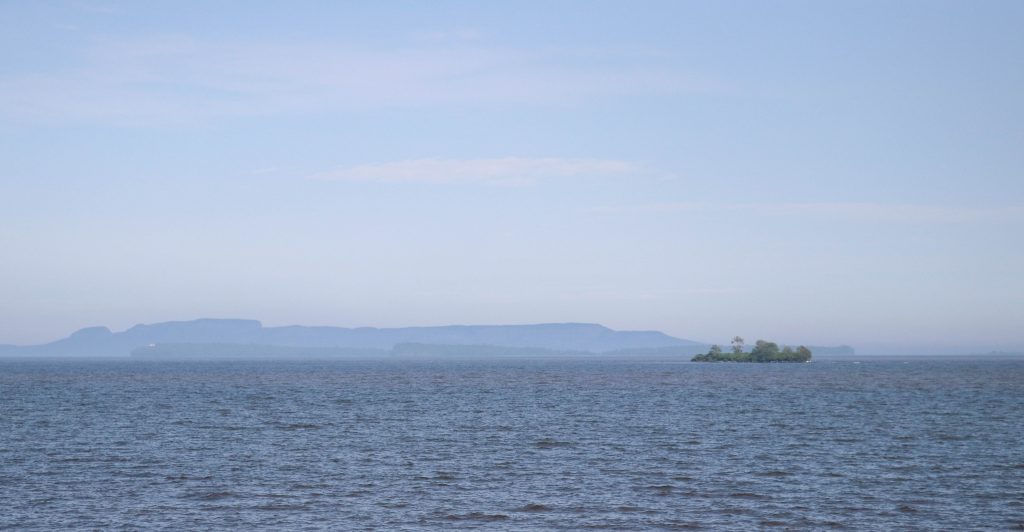issue i, January 2024
Living Here
By Keith Taylor
A few years ago I drove two African academics around Detroit. They wanted to get to know this city they had heard so much about. After visiting a few neighborhoods, Downtown and Mid-town, and the offices of InsideOutDetroit, a small nonprofit that does writing workshops in Detroit Public Schools, I drove them down East Jefferson toward Grosse Pointe.

Keith at an unfrozen Lake Michigan Jan 2019
I have always thought that the line between the two cities is a stark example of racist city planning, and I thought the Africans might be interested in seeing it. But a few hundred yards into Grosse Pointe we came up on the shoreline of Lake St. Clair. Although Lake St. Clair isn’t a Great Lake, is really part of the river system that connects Lake Huron and Lake Erie, it is still so large that the horizon intersects the water long before we can see the opposite shore. The Africans ignored the mansions on our left and stared out over all the water on our right.
“Is that really all fresh water?” one asked.
After I assured them that it was, the other asked, “But what do you do with it?”
I wanted to respond like a good, occasionally belligerent Great Lakes environmentalist; nothing, I wanted to say. We let it find its way to the ocean.
But that seemed like a very inadequate response to people from dry countries, where clean and potable water is a daily concern.
I wanted to find a way to make our connection to the water real to these people, to make it something other than casual. I tried to say something like—It sustains us. From our travel, industry and tourism to the very blood that flows in our veins, to the weather that surrounds us, to the food that feeds us. And it keeps flowing toward us, even though we’ve done nothing to deserve it.
I didn’t say that, of course. I’m a citizen of the Great Lakes basin, after all, and we are suspicious of sounding too grandiose about anything.
But as I’ve remembered that conversation over the years, it has occurred to me more than once, that I still haven’t articulated an adequate response to my African friends. I don’t want to do anything to or with the lakes, yet I know they shape me and the region around me in fundamental ways. What does it mean to be a part of this? A citizen here? And why is it different from other places?
I will keep trying to answer these questions, keep talking to other people who might know more than I know of these things or who find other ways to articulate the unique demands of the Great Lakes region. Perhaps this space will include something of that conversation. I hope so.

Amanda Rockellow Photography
